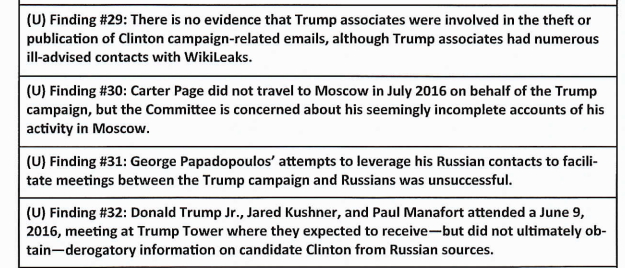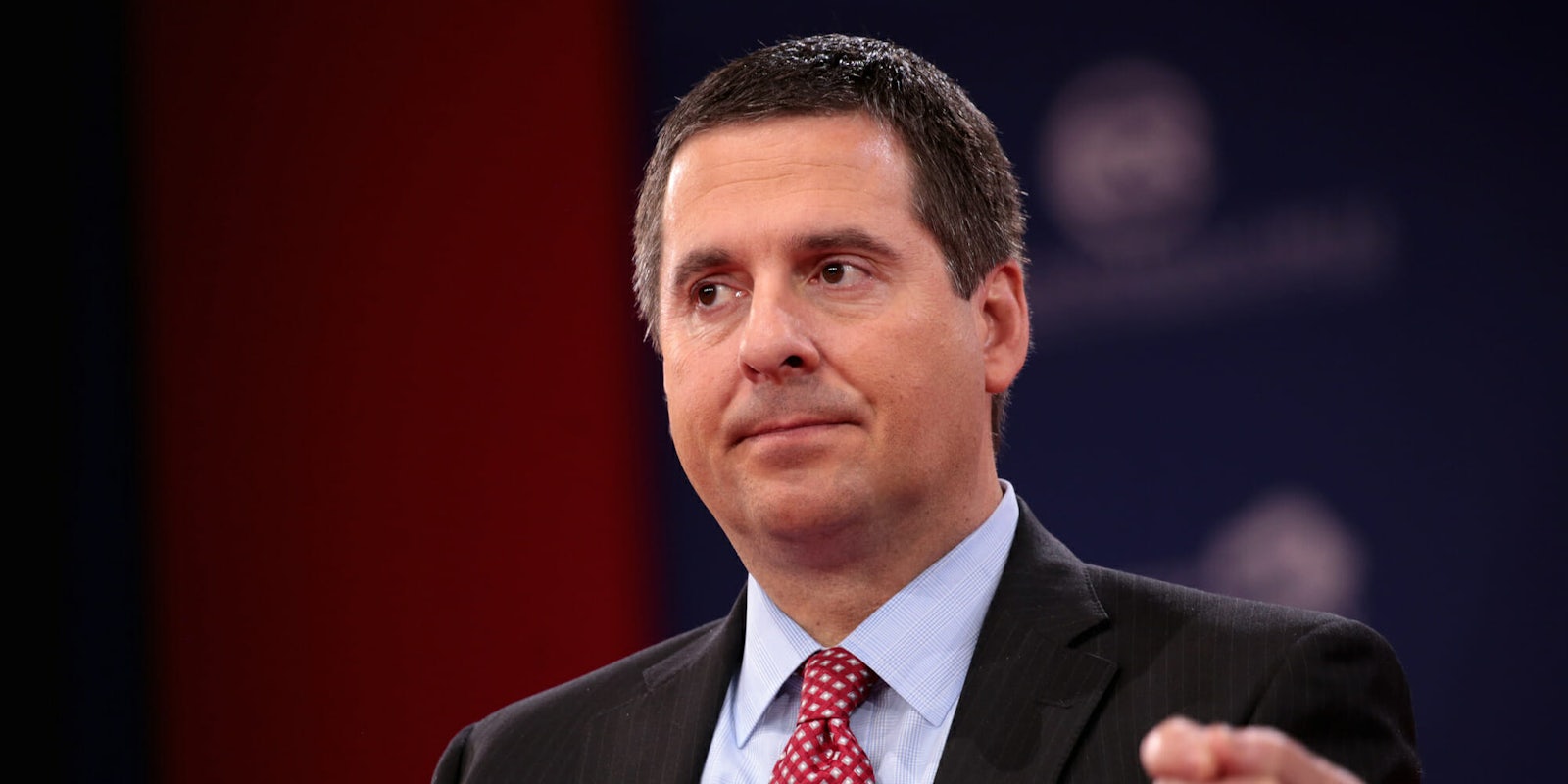The House Intelligence Committee voted along party lines on Thursday to approve a report on Russia’s role in the 2016 election that bends over backwards to vindicate President Donald Trump and his associates. The summary findings, which consist of five chapters and 26 recommendations, condemn Russian interference in the 2016 election while letting Trump and his administration off the hook. This summary was released in advance of a full report that will be released after vetting for classification.
The report even stops short of admitting that Russian interference in the election was explicitly on behalf of candidate Trump, contradicting key findings in special counsel Robert Muller’s ongoing investigation. With evidence of cyber attacks becoming more obvious with each passing day, the report does address some of the undeniable realities of Russia’s work to gain electoral influence in America and abroad via online agitation. But the back half of the report is little more than an attempt to force distance between Trump and the Russians.
The first chapter of the report focus exclusively on Russia’s pattern of interference in Europe. The major finding here is that the“Kremlin exploits free or independent media spaces and open democracies to conduct active measures in Europe.” The section concludes that Russia actively supports parties and NGOs with a Moscow-friendly agenda. But that analysis doesn’t apparently doesn’t cross the Atlantic.
In the second chapter, the report alleges that the same strategies were used by Russia during both the primary and general elections in the last American election cycle. The chapter asserts that Russian state media affiliates were part of “malign campaign influence” as were various social media campaigns. The most damning aspect of this chapter is the claim that “Russian state actors and third-party intermediaries were responsible for the dissemination of documents and communications stolen from U.S. political organizations.”
But the chapter stops short of naming Trump as their ideological ally or naming Hillary Clinton as a primary target of Russian opposition.
If these first two chapters left members of the #resistance feeling hopeful, the third, fourth, and fifth chapters, “America Reacts,” “Campaign Links With Russia,” and “Intelligence Community Assessment Links” offer less cause for optimism. The third chapter lays blame at the feet of pretty much everyone except for the Trump administration. In the Intelligence Committee’s view, the Department of Homeland Security had an ineffective response, the previous executive branch (Obama) offered an insufficient response, and the FBI overstepped their authority in their ensuing investigation. This chapter also explicitly states that “The Intelligence Community Assessment judgments on Putin’s strategic intentions did not employ proper analytic tradecraft.”
Chapter 4 goes on to all but exculpate Trump and his associates. The primary claim in that chapter is that “none of the interviewed witnesses provided evidence of collusion, coordination, or conspiracy between the Trump campaign and the Russian government.” The report then asserts that Trump’s prior business dealings in Russia had nothing to do with election interference, that George Papadopoulos and Carter Page were only on the campaign because the “Republican national security establishment” shunned Trump, and that various meetings involving people like Papadopoulos, Page, Donald Trump Jr., Jared Kushner, Jeff Sessions, and even Paul Manafort didn’t result in anything resembling collusion.
Even if it alludes to the fact that they did try and collude, but just couldn’t do it successfully.

This is likely to be one of the most frustrating chapters for Democrats to read, as these findings have been contradicted by concrete evidence. While the report suggests the absence of collusion on the part of Trump’s surrogates, Russian diplomat Sergey Kislyak has contradicted this in statements to the Russian government, saying Kushner wanted to set up a back channel with Russia. Additionally, Several witnesses have also accused Blackwater founder Erik Prince of attempting to set up a backchannel to Russia during a January 2017 meeting in the Seychelles.
In a truly vindictive set of findings, the fifth chapter of the report spends time condemning intelligence officials who have leaked information about Trump and his associates’ connection to Russia. The report insists that “continued leaks of classified information have damaged national security and potentially endangered lives.”
Given the details of the summary report, it’s not surprising that the recommendations fail to offer anything resembling accountability for the Executive Branch. While the recommendations do call for greater responsibility on the part of “European governments, non-governmental organizations, businesses, think tanks, and academia,” American social media companies, and the FBI, there is no suggestion of responsibility on the part of Trump or his lieutenants.
One potential silver lining is that the committee does recommend that Congress adopt the National Institute of Standards and Technology cybersecurity standards, and a one-time grant to address potential threats and vulnerabilities. But, the report follows this up with the caveat that “Congress should not hamper the Executive Branch’s ability to use discretion to this particular foreign threat,” and calls for the repeal of the Logan Act that prohibits prevents negotiation with hostile foreign governments by unauthorized individuals and which some Trump officials may be charged with violating.
Finally, the report takes a couple not so subtle digs at Christopher Steele and Fusion GPS, suggesting that future campaigns account for “cut-outs and international intermediaries.” The report closes with one last jab at leaking, suggesting that penalties for “unauthorized disclosures of classified information be increased.”
While it is notable that this report does admit to Russia’s tactics of interference in election at home and abroad, it is not a change of course for Republicans, but rather a narrowing of focus and hardening of defenses. Now that they have to taken Russia’s activities seriously, they have shifted into a mode of protecting the president and shifting the blame to everyone else involved.
If we learned one thing from this report, it is that the House Intelligence Committee as currently constituted will go down with the Trump administration ship.
What remains to be seen is some other force will sink it.


